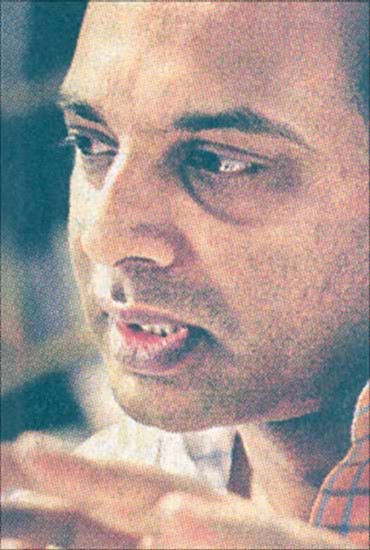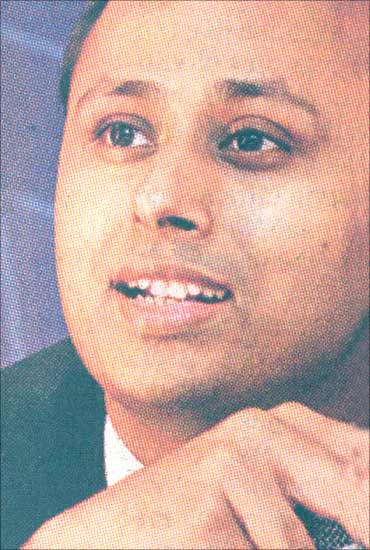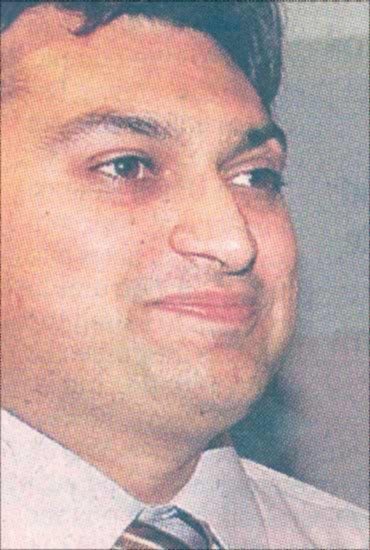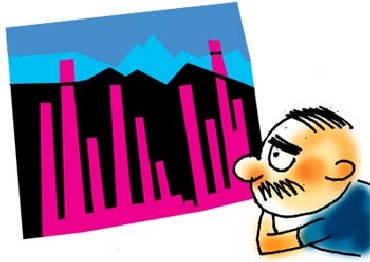 | « Back to article | Print this article |
Meet Indian pharma's generation next
The scions are seen as better equipped for future challenges of growth and global ambitions. Change is a prescription that several mid-rung pharmaceutical companies are following these days.
Take Suresh G Kare, for example. The chairman & managing director of Indoco Remedies will soon celebrate five decades in office as a pharmaceutical company chief executive.
But Kare is no longer involved in the day-to-day running of the company's operations. That job has been entrusted to daughter Aditi, who is director of business development.
Click NEXT to read more...
Meet Indian pharma's generation next
At a time when the Indian Drug Manufacturers' Association (IDMA) is also celebrating its 50th year of inception, many mid-cap pharma companies like Indoco are seeing the baton being passed down to the next generation.
For example, Jagdish Saxena, the founder of Elder Pharma, has handed over operations to sons Alok (director) and Anuj (managing director).
Succession stories are also unfolding at JB Chem and Unichem.
Click NEXT to read more...
Meet Indian pharma's generation next
In August last year, the 75-year-old Cipla inducted Kamil Hamied, son of joint managing director M K Hamied and nephew of chairman & managing director Y K Hamied, as a member of the management team.
Kamil, an International Baccalaureate graduate from United World College, Singapore, and a bachelor of arts from New York University, was involved with the marketing department at Cipla for the past six years.
At Dr Reddy's Laboratories, founder Anji Reddy passed on the baton to son Satish Reddy (managing director) and son-in-law G V Prasad (vice chairman and CEO) several years ago.
Click NEXT to read more...
Meet Indian pharma's generation next
And at Sun Pharma, founder Dilip Shanghvi's son Aalok is clearly being groomed for the top job. He was appointed director in recently-acquired Israeli company Taro Pharmaceuticals.
Wockhardt founder and chairman Habil Khorakiwala has already implemented a succession plan by bringing in son Murtaza as managing director in April 2009.
His brother, Huzeifa, is an executive director at Wockhardt. Piramal Healthcare is also witnessing a transition to generation next, with Ajay and Swati Piramal's daughter Nandini joining as executive director in April 2009.
Son Anand is expected to join the company soon.
Click NEXT to read more...
Meet Indian pharma's generation next
Lupin is also undertaking a management transition, with founder D B Gupta's son Nilesh in the forefront as group president & executive director, and daughter Vinita heading Lupin's US business.
D B Gupta has taken a back seat and the company is now run by the next generation, along with Managing Director Kamal K Sharma.
"One of the key challenges in the transformation to a big company has been attracting, training and retaining the right group of people. We have been very successful in keeping our top 100 managers in place. Another challenge has been to deal with increasing global competition. The world is increasingly becoming even flatter, and we compete on a truly global landscape," says Nilesh Gupta.
Click NEXT to read more...
Meet Indian pharma's generation next
Transformation is also seen at some of Gujarat's leading drug companies. At Zydus Cadila, founder, chairman & managing director Pankaj Patel is now assisted by son and joint managing director Sharvil P Patel, who has worked as deputy managing director for the last four years.
Alembic chairman and managing director Chirayu R Amin is grooming three sons Pranav, Shaunak and Udit to take over the 100-year old firm. Pranav is already a director in the company and heads Alembic's international business.
If most of these front-line homegrown companies were relatively small in size and focussed only on the domestic market in the past, now most of them are multinational corporations with operations on most of the continents.
Click NEXT to read more...
Meet Indian pharma's generation next
The challenges faced by the new generation in running the businesses are also different from what their previous generation experienced.
"Mainly, the challenges include corporate governance issues and managing a huge number of employees, plants and processes. Now, these companies cannot continue to work in isolation and grow, since partnerships at global levels are important for future growth. Same is the case with consistent planning and development of a pipeline of products for growth in the next few years," says Ajit Mahadevan, partner, life sciences practice, Ernst & Young.
That requires a different mindset and professional approach on the part of promoters and management, he adds.
Click NEXT to read more...
Meet Indian pharma's generation next
"Another challenge has been coping with increasing global competition. As the company grows further, we will have to focus even more on constantly staying on the learning curve, to constantly have our people acquire new capabilities and skill sets that help us differentiate ourselves in the marketplace with our product offerings," agrees Nilesh Gupta.
Stricter regulatory vigilance on various continents, especially in the US and Europe, and currency fluctuations in various countries are things these global companies need to watch out for, warns Ranjit Kapadia, vice-president (institutional sales) at HDFC Securities.
"They deal in various geographies and numerous countries and it requires a totally different approach from the earlier generation's way of doing business in India. The world has become a global village and you need to have skills to manage business swiftly in all these countries," he says.








